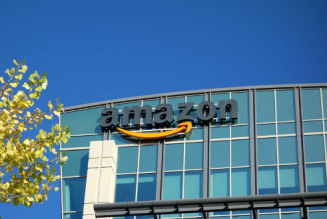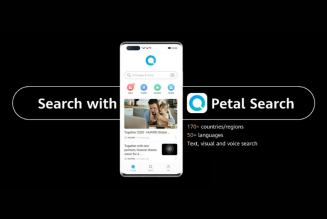Never has there been such a surge in mobile usage and application development to meet the demands and challenges of fast-paced consumers who increasingly rely on mobile devices to connect with brands
According to Yaron Assabi, Founder & CEO of MVNE, part of the Digital Solutions Group, “Enterprises now focus on enabling consumers, employees, and ecosystem partners. Companies no longer just serve customers; they collaborate with them. They no longer just compete with rivals; they partner with them. They’re no longer limited by industry boundaries; they ignore them. In short: platform-based ecosystems are the new plane of competition.”
In fact, it is becoming such a strong and competitive position that companies are now partnering across the ecosystem to encourage consumer-facing brands to incorporate new profitable mobile services into their value proposition and launch ‘ Branded Mobile services’ or MVNOs ( Mobile Virtual Network Operators ).
Never has there been such a surge in mobile usage and application development to meet the demands and challenges of fast-paced consumers who increasingly rely on mobile devices to connect with brands.
“Consumers demand tailored products and services for their needs and the ability to offer a non-comparative customer value proposition based on niche value combining the core business and telco into a differentiated offering. It is a critical success factor for MVNO’s” adds Assabi. “A targeted customer value proposition to a niche customer segment can gain a lot of traction quickly. That’s exactly where Mobile Virtual Network Operators (MVNOs) and their technology partners, Mobile Virtual Services Enablers (MVNE) should focus. The MNO (Mobile Network Operator) or host network sees tremendous benefit from very profitable customer relationships because of the wholesale business model construct whereby all of the billing and customer service responsibility, including service costs, lies with the MVNO and it enables the MNO to “sweat its assets” with no major additional resources required and hence improvement in profitability.”
“That is a lot of acronyms but it’s an eco-system that works when executed well.”
An MVNE empowers brands to focus on their go-to-market strategy, mitigating the risk and reducing the expenditure and requirement for people and skills for their MVNO.
According to Assabi, “we help to “Mobilise your brand” and help brands combine their core business with Telco to design a unique customer value proposition. MVNE is the enabler for DSTV Internet (https://bit.ly/3BvQ0Hz), a huge success, given it solves the need to combine content and connectivity in Africa. We know that for consumers, the cost of data is the biggest part of the spend when streaming entertainment, therefore, a cost-effective communications solution is critical to making content more accessible anywhere, anytime, on any device.”
Did you know that 50% of Africans have mobile phones? This means that mobile technology is the largest platform in Africa and can access a wide range of income groups.
“Furthermore, if we take that AppsAfrica reports Mobile App downloads have surpassed 98 billion, we can see how fast this market is growing. And added to this Hootsuite (https://bit.ly/3PkcMrr), has indicated that South Africans are higher than the global average, spending more than 10 hours a day on the internet, connecting via mobile devices. Therefore, a brand needs to ensure that it creates on-demand, personal, engaging experiences with and for consumers when targeting them on their mobile.”
“Over the last few years, the MVNO market has proven itself in Africa to create more competition and as a result make data services more affordable, especially given that we have one of the highest data charges in the world, which does not make sense for Africa where we desperately need to create digital adoption and create “digital jobs”, says Assabi.
“As the first MVNE in South Africa, founded in 2013, we have spent time educating the market about the importance of a strategic partnership between the MNO (Mobile Network Operator and MVNO) and we paid a lot of attention to the critical success factors required to ensure that we reduce the high mortal rate of MVNO’s and equip them with the tools for success.”
Our MVNE does not only provide all the technology platforms required to run a successful MVNO but offers a “white glove service “from customer value proposition design, and commercial viability, to smart people that can provide a managed service,” says Assabi.
“So, yes, while MVNOs are focused on creating value, by linking a mobile offering to a brands existing products and services, MVNE can offer managed services to the MVNO as well as a “pay as you grow” or “shared risk and success model” as it differentiates on products and services – and builds an eco-system that is backed by positive customer experience.
In creating platform-based ecosystems and smart collaboration between businesses that may compete and collaborate at the same time, it is important to identify and partner with service providers who have experience in scaling and developing these niche solutions. “In our case partners who have built their experience on the African continent. Such is the case with NetEngage, who currently service 38,6M subscribers across ten MVNOs and manage 19,4 Billion calls per year.
So, yes, I reiterate again, platform-based ecosystems are the new plane of competition,” concludes Assabi. “Branded mobile services are not only an important way to create more competition, and offer consumers more choice, but when done correctly, allows companies to compete in this increasingly competitive landscape.”
Staff Writer









Tagged: Mobile and Telecoms, Southern Africa